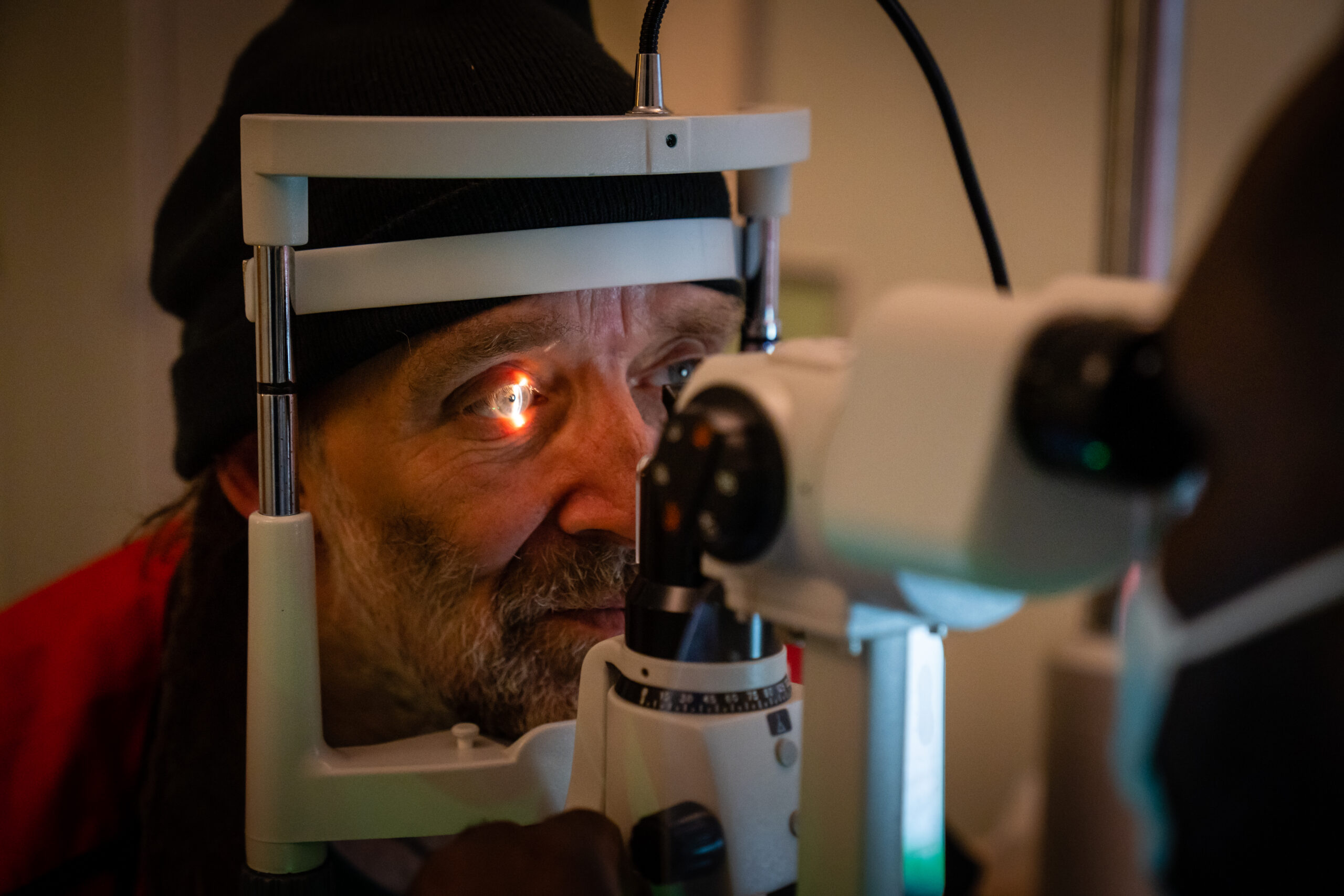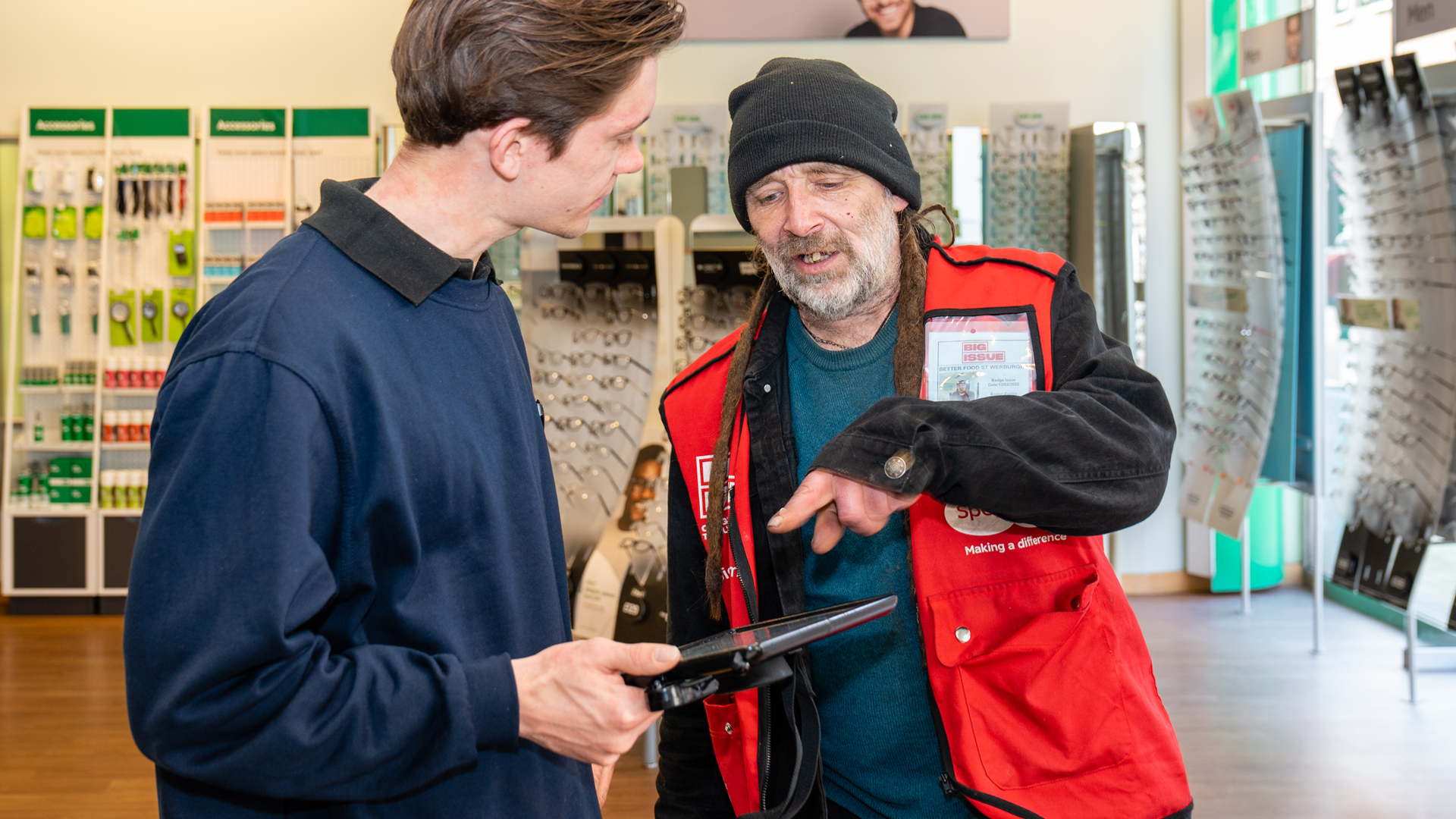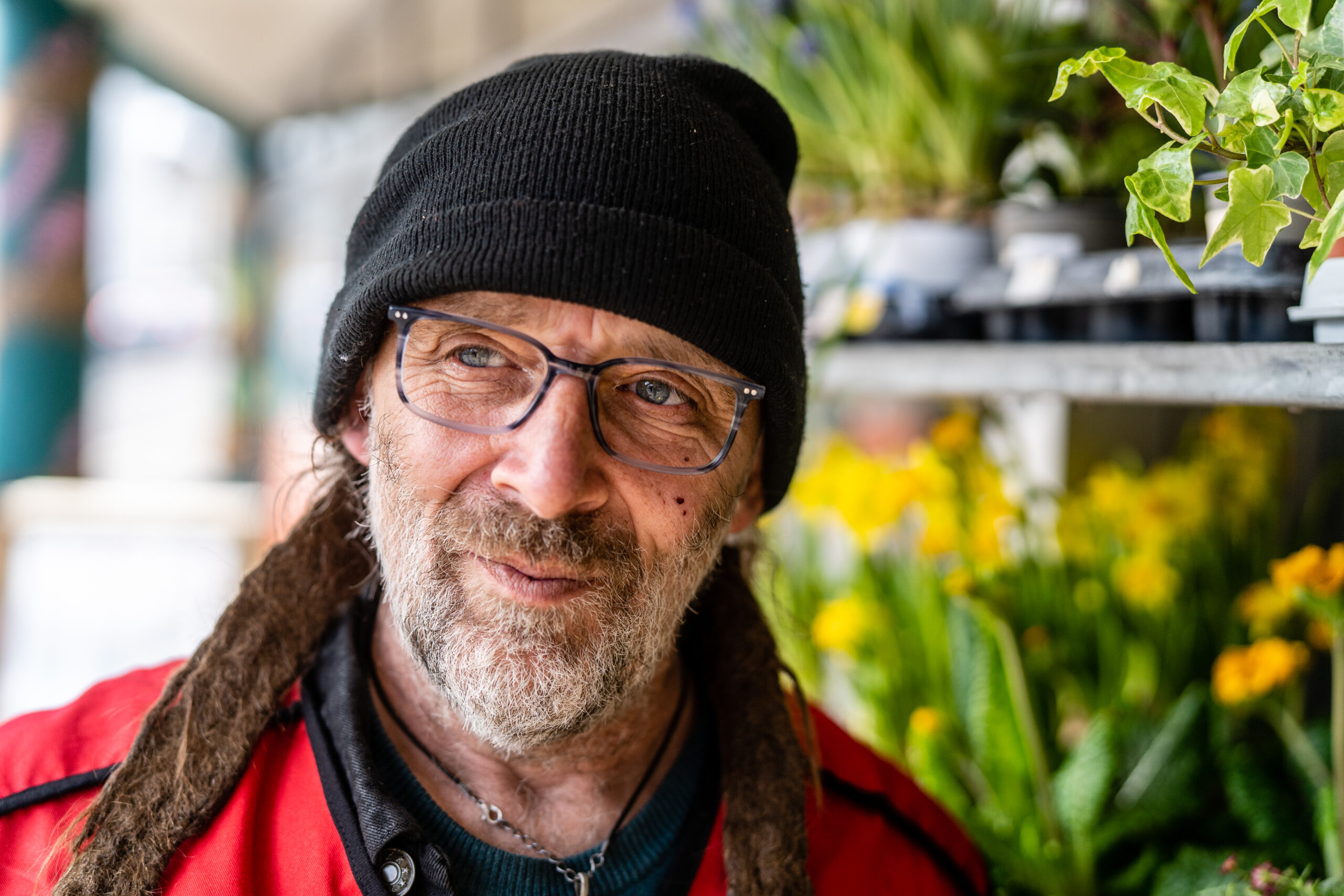Will Payne, a Big Issue vendor who sells the magazine in Bristol’s St Werburgh area, is about to get new glasses. This is a big deal. He’s had vision problems for years; the result, he says, of his time living in protest camps, reading by candlelight. His previous glasses were stolen while he was working security at a music festival last year. “Since then I’ve used cheap reading glasses,” he says. “It’s not my prescription, though. After a heavy reading session, I get headaches.”
And reading is hugely important to Will. “I describe myself as a readaholic,” he says. “I get through five novels a week.” During the winter Will lives with his cat, Pete, in a “beautiful green Gypsy caravan, hand painted” on a Bristol campsite. In the summer he works the festival circuit. “I write a lot of poems, novels, short stories and novellas,” he says. “I’m toying with a children’s book at the moment. I’m just about to turn 59. I promised myself when I get to 60, I’ll be a world-renowned novelist!”
Many vendors … likely need glasses but have never taken that step. There are accessibility barriers due to the nature of the vendors’ transient lifestyles.
Hattie Greenyer, Big Issue’s South-west frontline manager
Healthcare and eye care aren’t straightforward for someone like Will, however. Hattie Greenyer, Big Issue’s South-west frontline manager, says: “Many vendors are men in their 50s who likely need glasses but have never taken that step. There are accessibility barriers due to the nature of the vendors’ transient lifestyles.” Thanks to a collaboration between Big Issue Group and Specsavers, exclusive sponsors of the iconic red tabards worn by vendors throughout the UK, Will and other vendors can now benefit from a free comprehensive eye test and eyewear, as well as free ear wax removal. It’s part of Specsavers’ efforts to help remove potential barriers to accessing eye care, such as a lack of permanent address, which is also seeing it work with homelessness charities Crisis and Vision Care for Homeless People, having supported the latter for more than 10 years.

It’s what’s brought Will to the Specsavers store today. He’s greeted by optical assistant Karin Ferrandi, who takes him through the test process and discusses his vision problems, while he regales staff with tales of his childhood – hanging around rockstars in swinging ’60s London courtesy of his uncle, a BBC audio engineer – and enthuses about his favourite writers (“I love Robert Rankin, he’s a genius, Jasper Fforde, Ian Rankin”). Optical supervisor Joe Johnson begins the tests by using a tonometer, a device that gently puffs air onto the eye surface to measure internal eye pressure. This helps assess the risk of glaucoma, an eye condition that can cause optic nerve damage and lead to vision loss. He also evaluates Will’s ability to focus and determines if he’s long or short-sighted. Next, he takes a photograph of Will’s eyes with a digital retinal camera. The image will be saved for future eye health monitoring.
Having the opportunity to get glasses and see better makes anyone feel valued and important.
Karin Ferrandi, optical assistant
Optometrist Kham Garland then performs a retinoscopy to check Will’s focusing ability. He also conducts a vision test with a Snellen chart, with rows of progressively smaller letters to fine-tune the lens prescription. Will’s comprehensive eye test is topped off with an OCT (Optical Coherence Tomography) scan. It provides a detailed 3D image of the eyes that enables optometrists to detect signs of serious eye conditions, including glaucoma, up to four years earlier. “Regular eye checks maintain eye health,” says Kham. Some conditions can be sight-threatening without showing symptoms, and issues like diabetes or high blood pressure affect vision. Catching changes early helps prevent vision loss. This is particularly true for people sleeping rough or without access to regular healthcare.
Lack of regular hygiene can lead to issues like dry eye disease, blepharitis, and meibomian gland dysfunction, conditions related to inflammation and the stability of the tear film. People with no permanent address can find it difficult to access sight tests. A study by Vision Care for Homeless People found 67 per cent of people they supported report having eye care needs. In one clinic, 95 per cent of patients were supplied with new glasses – a much higher proportion than would usually be seen in a high street opticians like Specsavers.










